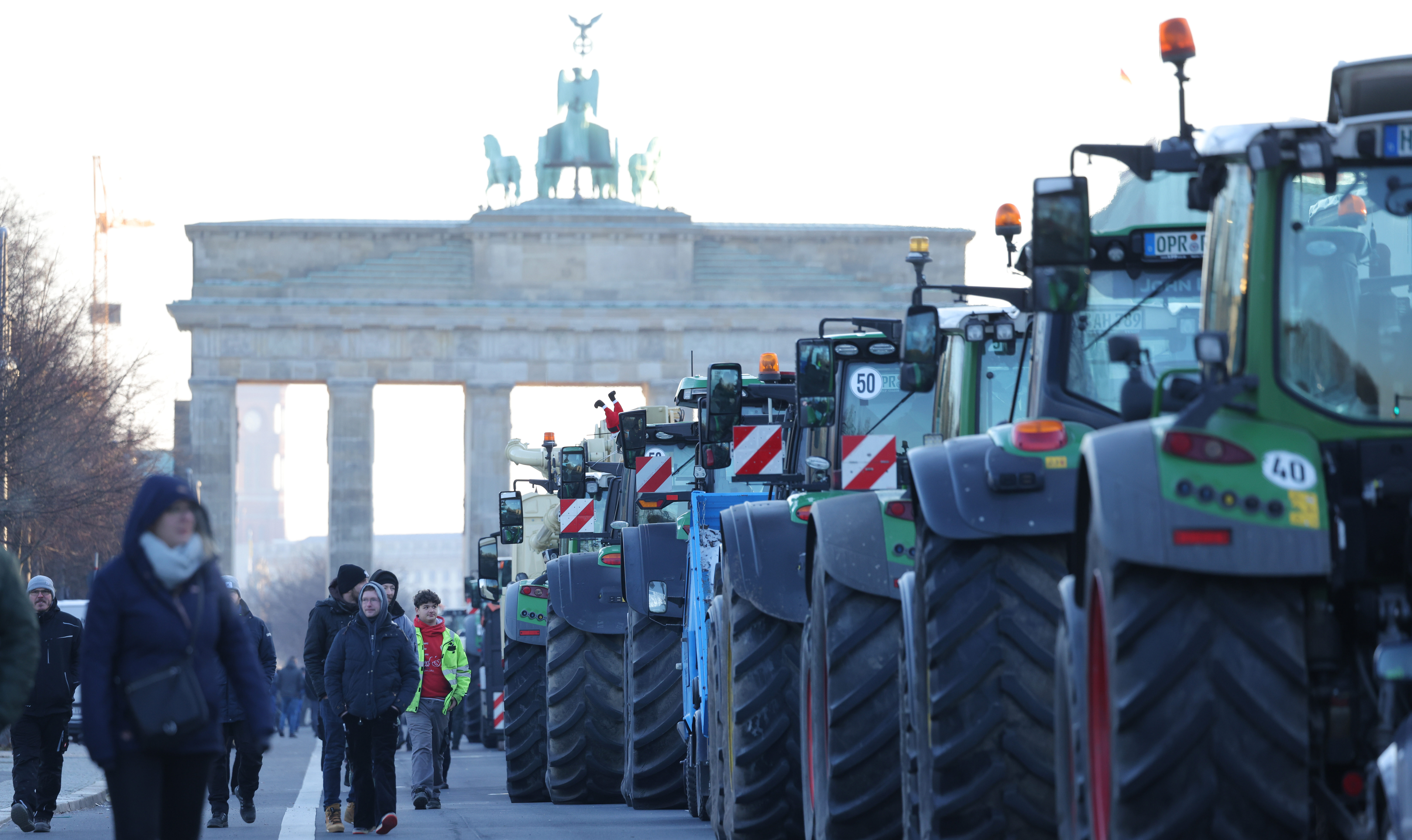Lenin is reported to have joked that “when German revolutionaries have to capture a railway station, they first buy platform tickets at the booking-office.” Stereotypes are dangerous things, but the claim that Germans are less prone to revolutionary outbreaks than, say, the French is not entirely without merit.
It is therefore no coincidence that the ongoing German farmer protests are worrying the coalition government. The farmers, who kicked off a week-long series of national protests yesterday, are primarily demonstrating against the reduction of certain tax exemptions, particularly in the area of diesel use for agricultural purposes.
This economic issue, however, must be seen in a broader context. The German agricultural sector is in surprisingly good economic shape if measured by income level. In 2023, independent farmers made an average profit before tax of €82,000, and the diesel subsidies are only 5% of all subsidies — hardly a life-threatening government measure. Yet this is precisely why these protests have the potential to become a real problem for Olaf Scholz and Vice Chancellor Robert Habeck: they are not primarily economic in nature.
By taking to the streets, farmers are amplifying a growing dissatisfaction among the German people towards Scholz’s administration. Flash surveys taken in areas affected by the protests reveal significant support for the farmers, despite the resulting traffic inconveniences. It is doubtful that this support is caused merely by concern for Germany’s agricultural sector: more likely is that it also represents a fear of yet losing another industry that has historically been important for national identity. The decay of industry and infrastructure, rising energy costs and a general sense of decline are also fuelling these protests, which may yet grow into something larger.
Both sides of the political aisle realise this, and are trying to capitalise on public anger. For example, in Saxony the Right-wing AfD is preparing meals for the protesting farmers, while Green politician Habeck has taken to Instagram to warn that the protests could be hijacked by extremists and funded by Vladimir Putin.
So far, though, the farmers appear to have gained the upper hand. The governors of the states of Mecklenburg-Vorpommern and Lower Saxony have publicly thrown their support behind the protesters’ demands, despite being members of Scholz’s Social Democratic Party. The Chancellor himself is keeping surprisingly quiet, an indicator that he is unsure in which direction the wind will ultimately blow. As the demonstrations show no sign of ending soon, it is clear that the prior reluctance of Germans to protest in the streets has faded away. Even if they might still buy a ticket to get there.











Join the discussion
Join like minded readers that support our journalism by becoming a paid subscriber
To join the discussion in the comments, become a paid subscriber.
Join like minded readers that support our journalism, read unlimited articles and enjoy other subscriber-only benefits.
Subscribe